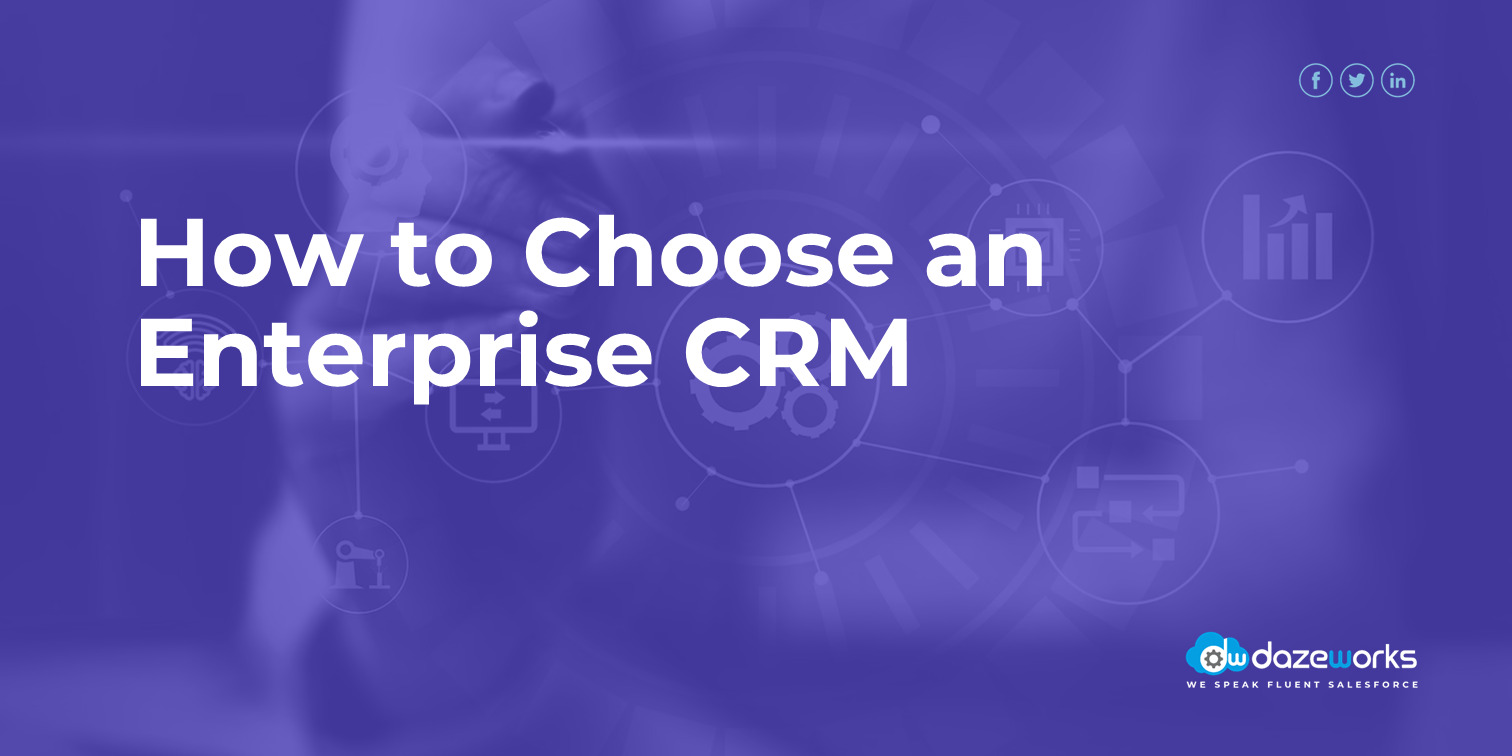
How to Choose an Enterprise CRM?
minutes read
In today’s competitive business landscape, customer relationships are the cornerstone of any successful enterprise. Customer Relationship Management (CRM) systems have become an indispensable tool for managing customer interactions and driving business growth. Whether you’re a small enterprise looking to scale up or a large corporation seeking to streamline your sales processes, selecting the right enterprise CRM can make all the difference. But how to choose the right CRM for your business? In this blog we’ll list down some vital questions that you must ask before investing in an enterprise CRM solution.

What are Your Business Objectives?
Before diving into CRM options, it is crucial to understand your business requirements. Identify the specific pain points you want to address, determine your goals, and analyze your existing processes. Consider factors such as the number of users, types of customer interactions, data management requirements, scalability, and reporting capabilities. This initial assessment will provide clarity on the features and functionalities you need from an enterprise CRM.
Does the CRM Offers Scalability and Flexibility?
Enterprise businesses are dynamic and often experience growth. Therefore, it is essential to choose a CRM solution that can scale and adapt to your evolving needs. Consider whether the CRM system can handle large volumes of data, accommodate a growing user base, and support increased customer interactions. Additionally, assess the CRM’s flexibility in terms of customization options to align with your unique business processes.
What are the Integration Capabilities?
Efficient data flow across different systems is vital for seamless operations. Evaluate the CRM’s integration capabilities with other critical systems such as marketing automation platforms, ERP systems, customer support tools, or e-commerce platforms. Determine if the CRM offers pre-built integrations or APIs to ensure smooth data exchange and provide a unified view of customer information.
How User-Friendly is the CRM?
A user-friendly CRM system is essential for user adoption and maximizing its potential. Consider the user interface, navigation, and ease of use when evaluating CRM options. Look for intuitive features, customizable dashboards, and streamlined workflows that align with your team’s needs. Additionally, check if the CRM vendor provides comprehensive training and support resources to facilitate a smooth transition and help your team leverage the CRM effectively.
Is CRM Mobile Accessible?
In today’s fast-paced business environment, mobile accessibility is crucial for a successful CRM implementation. Look for a CRM solution that offers mobile apps or responsive web interfaces, enabling your sales representatives and field teams to access and update customer information while on the go. This empowers your team to stay connected, respond promptly to customer needs, and maintain accurate data records.
What are the Security and Data Privacy Options?
Protecting customer data is paramount, and compliance with data privacy regulations is mandatory. Evaluate the CRM vendor’s security measures, data encryption practices, and compliance with industry standards like GDPR or CCPA. Ensure the CRM provides robust security features such as role-based access control, data encryption, and audit trails to safeguard sensitive customer information.
What is the Total Cost of Ownership?
Consider the total cost of ownership when selecting an enterprise CRM. Look beyond the upfront costs and consider ongoing maintenance fees, customization expenses, integration charges, and data storage costs. Compare pricing models offered by different CRM vendors and assess whether the CRM solution provides long-term value for your investment.
Did you Check the Vendor’s Credibility?
Reliable customer support is crucial for the success of your CRM implementation. Research the reputation of CRM vendors in terms of customer satisfaction, responsiveness to support requests, and ongoing system updates and enhancements. Reading customer reviews and seeking recommendations can provide valuable insights into the vendor’s support quality.
Choosing the right enterprise CRM requires a thoughtful and systematic approach. Remember that a well-selected CRM system can streamline your business processes, enhance customer relationships, and drive overall growth and success for your enterprise.
